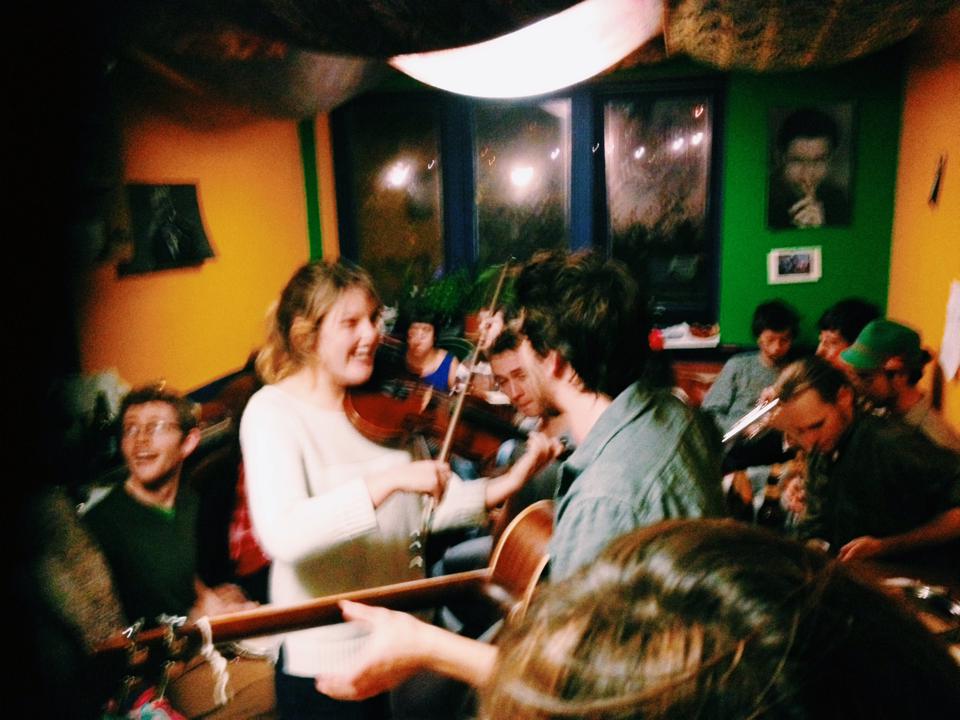This post originally appeared on the Students for Co-operation website on 2 February 2015, written by Mike Shaw, one of ESHC’s founding members.
THERE IS AN ALTERNATIVE:
Setting Up the Edinburgh Student Housing Co-operative
Edinburgh’s private landlords are not unusual in their habitual tendency to screw over students. Through extortionate rent, substandard flats, dodgy letting agencies, and an impressive commitment to profit above all else, landlords too often succeed in making the lives of students miserable. From within this malaise, a small band of us decided to directly demonstrate that housing needn’t be like this. We wanted to increase the amount of affordable housing available for students by creating an autonomous, sustainable, student-owned and democratically-run housing co-operative as a demonstrable alternative to the private rental market. Our idealism was regularly belittled. But we’d done the research. We knew it would work.
In the following I’ll outline the 18 month story of taking a pipe dream to the point where we had the keys in our hand to the UK’s largest student-run housing project – the 106 bed Edinburgh Student Housing Co-operative. In future articles we’ll tell the story from the day we moved in, of taking two buildings and collectively organising ourselves into a self-managed and incredibly strong co-operative community.
The Co-operative Ideal
Despite a long and successful history across North America and parts of Europe, co-operative student housing has never really existed in the UK. Other groups of students and indeed the NUS have tried in recent years, but have come to nothing. So why is it that we have been successful alongside Birmingham Student Housing Co-operative and the soon to open Sheffield Student Housing Co-operative?
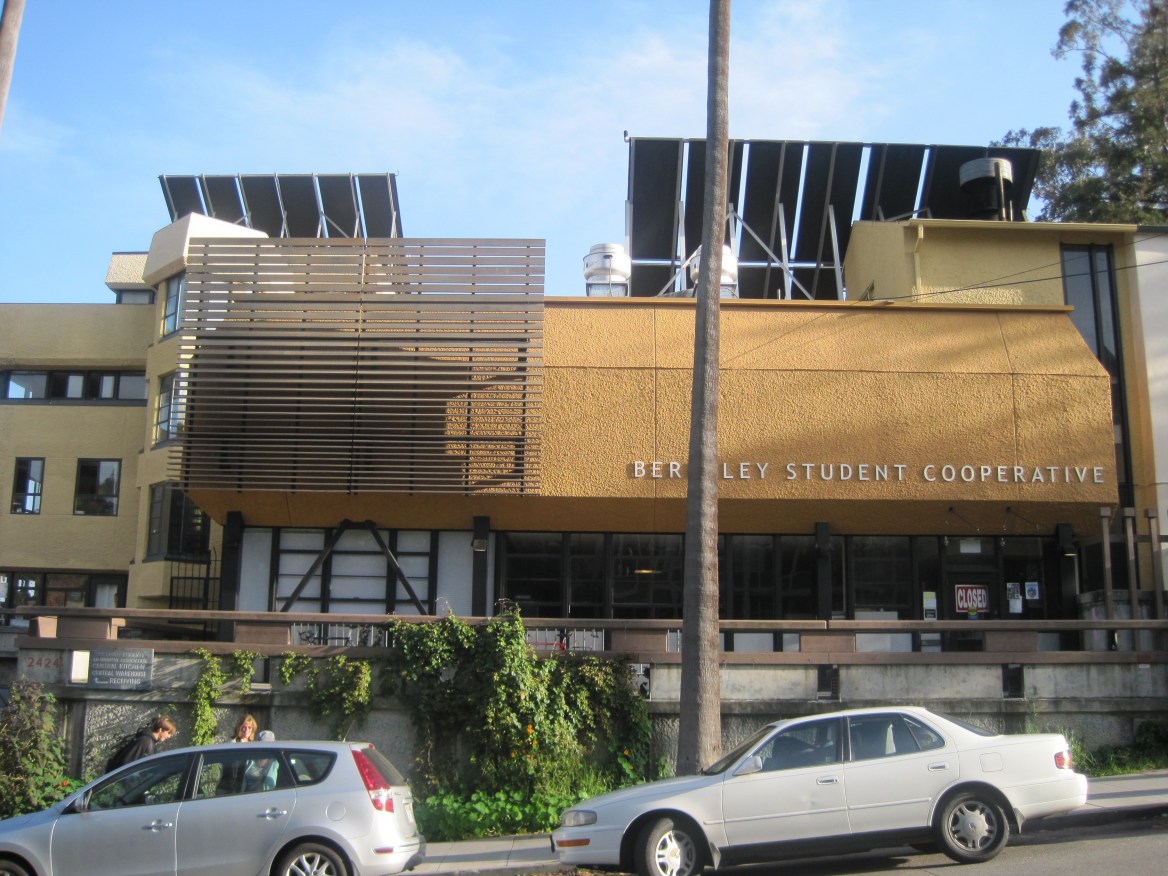
The most successful co-operatives address a clear social need. Rents now eat up an average 95% of maintenance loans. As such, student co-operatives have been an active part of a broad, emerging grass-roots campaign for affordable housing and stronger tenants’ rights. Current legal and financial structures are stacked against co-operatives, whilst most members of the public don’t really know what a co-operative is. So many fantastic opportunities for co-operatives are regularly missed or left unsupported. New co-ops receive few resources or attention from out-with the movement, and in Britain co-ops are generally pretty poor at supporting one another. We could not have become established without the support of others across the wider movement – including Co-operative Business Consultants, Radical Roots, The Phone Co-op, Co-operative Education Trust Scotland and BCHS – who recognised not only the value of our particular projects, but also the desperate need to develop a new generation of co-operative organisers.
Co-operatives must be democratically organised and led by their members. They are not charities, they’re about self-help – empowering people to take control over their lives, their communities and the economy. The co-operative ideal is built on the fundamental idea that the people best placed to make decisions over any aspect of society and the economy are those most directly affected. Member/tenants of a housing co-operative are also those most invested in its success.
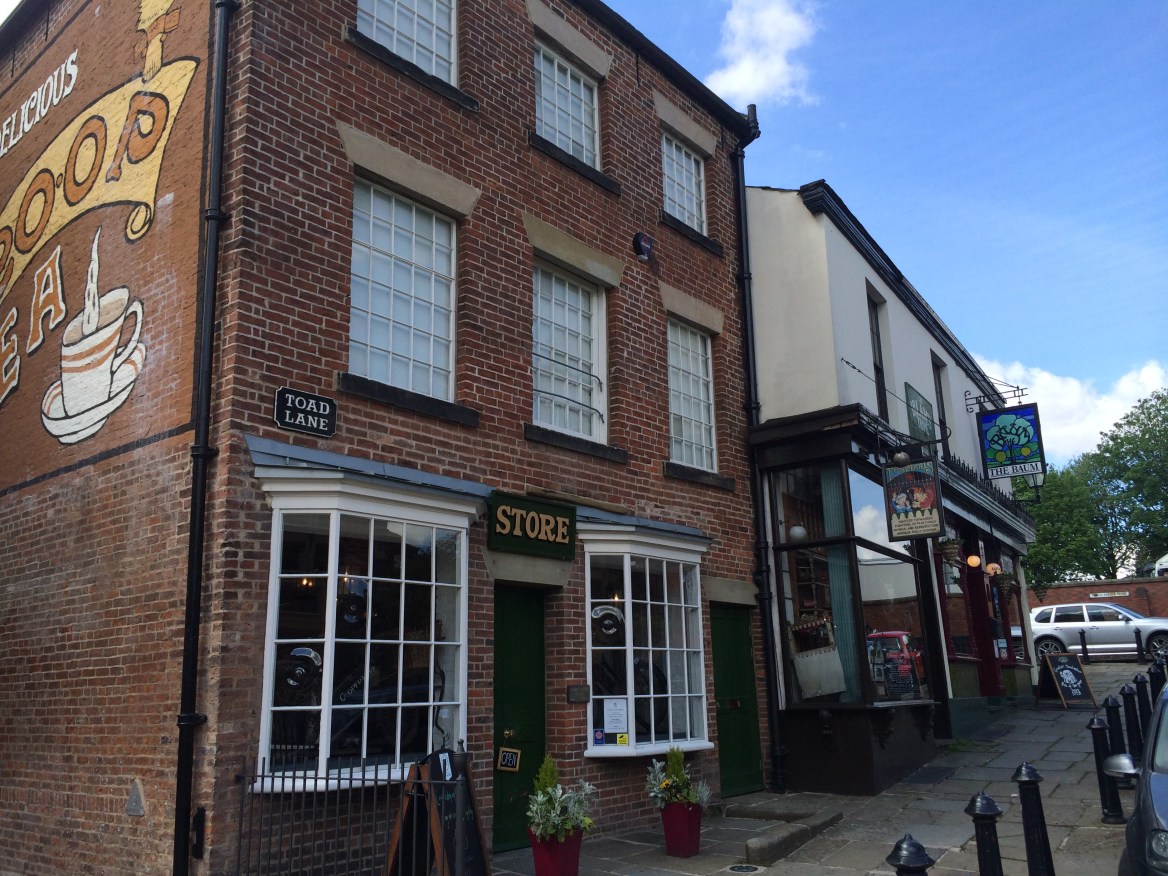
The Campaign
We enjoyed scouting property papers for our dream home, but it quickly became clear that securing sufficient financial investment in such an apparently risky and untested venture would be extremely difficult. Peter McColl, the University Rector, had committed to making student accommodation a priority for his term in office so together we developed a strategy. The initial stage was simple. We needed to show demand and get some endorsement. So we ran an all-student referendum at the University of Edinburgh, mandating the students’ union, EUSA, to work “with the University, City of Edinburgh Council and any interested students to establish a student owned housing co-operative project”. We spoke to thousands of our peers through door-knocking, flyering, lecture shout-outs and online campaigning.

The feedback was overwhelming. Every student had a story to tell. How they struggle with rent, how their friends have been screwed over. The lack of community. The loneliness. The precarity and rat race. The consensus was clear: The world of student housing needs to be turned upside down. Housing should be taken out of the control of profiteering private landlords and halls, and put under the collective, democratic control of those who actually live there. Students should not be pitted against other local residents, whilst private developers walk over all of us. Tenants need much stronger rights, so we don’t live our lives at the whim of a landlord. University halls should be run in the interest of students, not those of managers who treat us as cash cows, who’d rather see halls become hotels rather than homes. 92% voted in favour of the proposal on a record turnout.
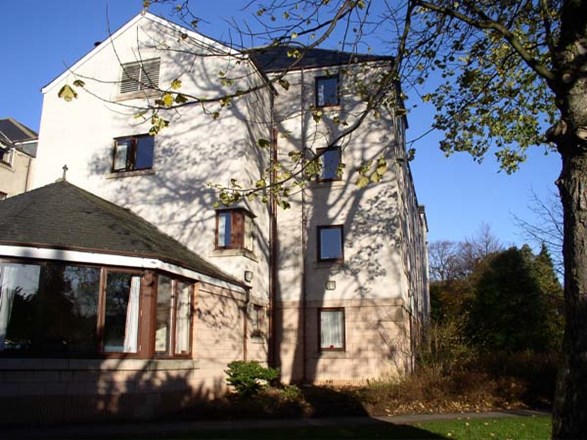
Laying The Groundwork
Filled with confidence we began stage two. Peter organised a meeting for us with some experienced organisers he knew within the co-operative movement, including the ever helpful and supportive Martin Meteyard. Martin’s support was provided courtesy of the incredibly successful Co-operative Enterprise Hub – which has also supported Students for Cooperation and the Birmingham and Sheffield housing co-ops. People’s unease would visibly melt away once they knew Martin was advising us. Peter also arranged a meeting with the City Council’s Housing Leader, Cllr Cammy Day, who had a number of ideas and options, and had his team hunt through their portfolio for potential properties. This stage was a long, drawn out process. Lots of meetings and little apparent progress. Promising leads would soon prove false. We became demotivated and frustrated, but we continued slogging on. Properties were few and far between. Finance was non-existent. But we continued searching, shouting about co-operative housing, and exploring the practicalities. We were also very aware that, with the support of The Phone Co-op, our friends in Birmingham and Sheffield were making significant progress in the race to become the first.

But our hard work paid off. Edinburgh’s largest housing association, Castle Rock Edinvar (CRE), had approached the City Council regarding a property they owned. The Council encouraged CRE to approach ourselves as a serious contender for the taking on the property. They were already exploring a number of options for a property they believed suitable, but needed to rapidly reach a rapid decision in time for whoever took over to be ready for the new academic year.
Wright’s Houses contain 24 flats, a total of 106 bedrooms, split across two buildings with The Golf Tavern sandwiched in the middle. The views across the historic Bruntsfield Links are incredible. The buildings had been built by CRE in 1994 and leased to Napier University for twenty years. With the lease coming to an end, Napier had decided to move to new shinier halls (with higher rents) down the road in Fountainbridge – leaving CRE with a couple of soon to be empty buildings that they needed to fill. CRE instantly bought into the idea, and used their staff’s expertise and experience to advise us. They often seemed to be even much more enthusiastic and confident than we were!
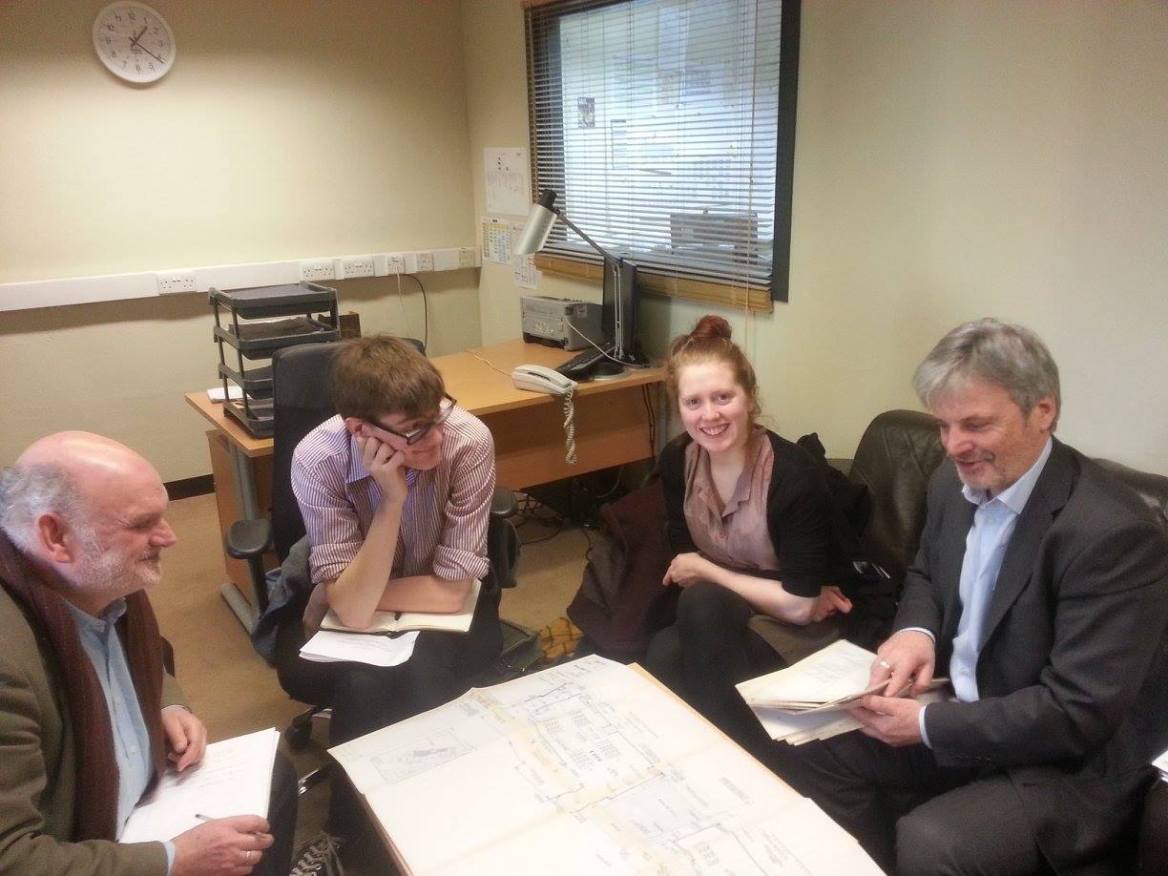
Doing The Legwork
From our first meeting with CRE it was clear to us that the project was financially viable if we were to lease the building from them at a market rate, whilst leaving the option to buy open in future years once we have financially proven ourselves as a project to potential investors. We were able, somehow, to convince them that we knew what we were doing. We were also, crucially, able to negotiate the lease to be paid in arrears – at the end of each quarter. This simple agreement would allow us to collect the first few months rent before paying the first lease payment, massively decreasing the amount of start-up capital we’d need to secure.
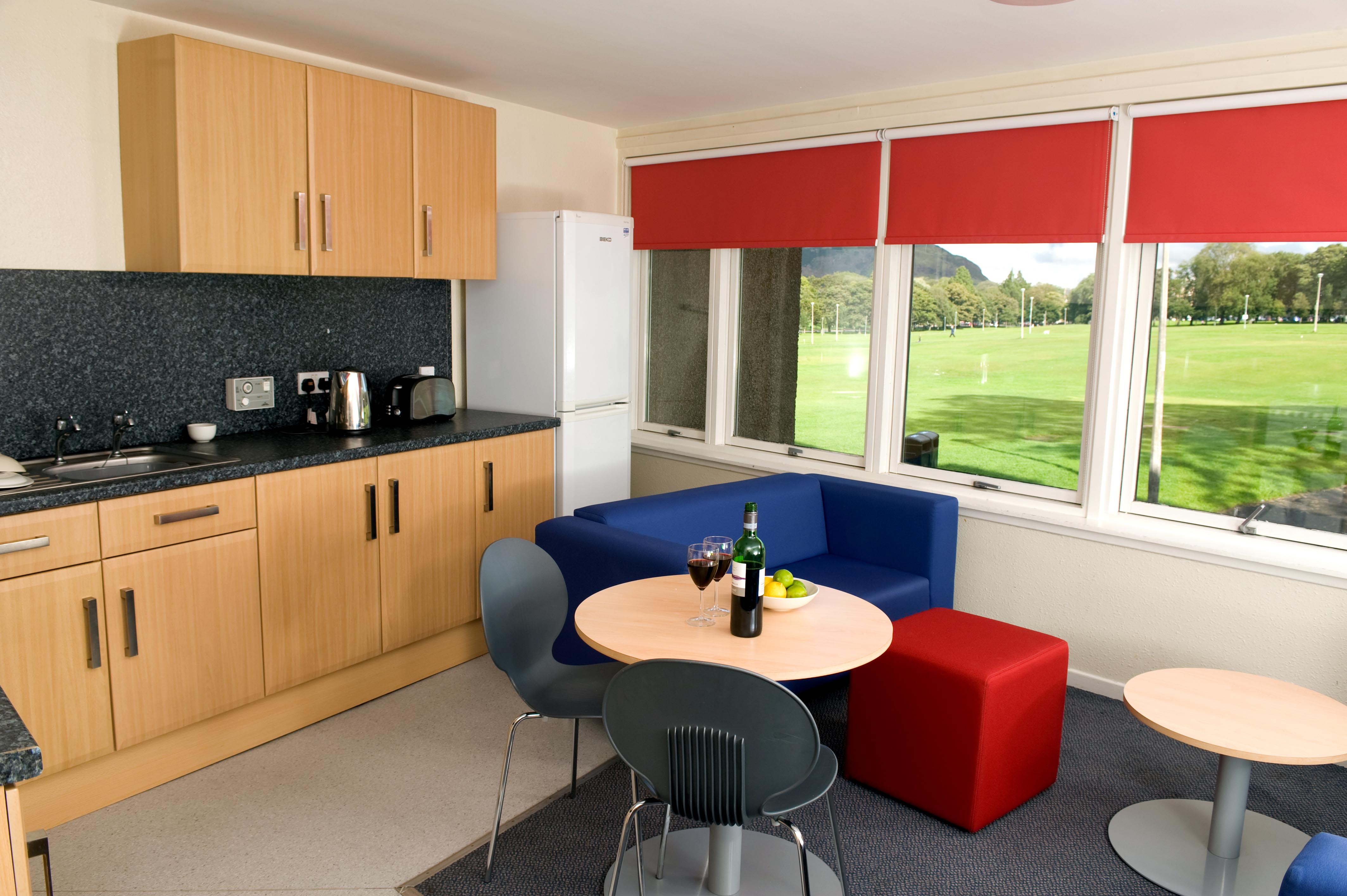
On top of this agreement, we arranged for various costs such as legal fees, insurance, building surveyors and stamp duty to be issued as 30 or 60 day invoices – similarly postponing payment until the co-op had begun collecting the first rents. To become a member of the co-operative, members also had to purchase a £100 withdrawable share – collectively raising a crucial £10,000 to cover costs in our first month. Scotmid Co-operative also gave us a £2,000 grant up front towards communal renovations and we took out a £15,000 loan from Co-operative and Community Finance to cover initial cash-flow. Napier University was obliged by their lease to return the building in the same condition they had originally received it in, for example requiring them to strip the carpets and repaint the walls. A deal was struck. They could save on the cost of tidying up the building and in exchange leave us all the furniture, fixtures and fittings – saving us a significant amount of start up capital. This led to the peculiar realisation that on the day our first members moved in we had only actually parted with £64 cash!
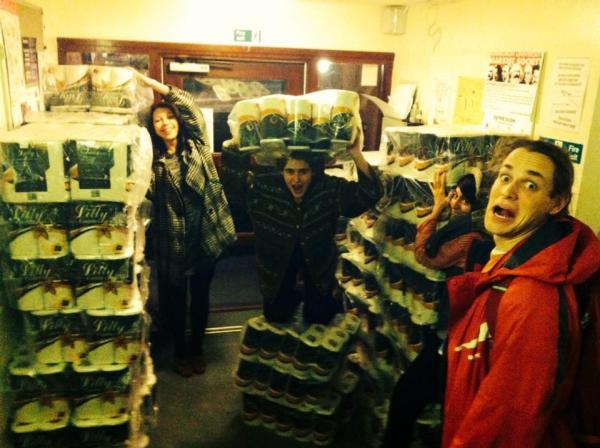
Early in the process we wrote a long list of absolutely everything we could think of that we’d need to put in place, a very useful exercise for breaking the project down into more manageable chunks. We had to organise incorporation, insurance, contracts for fire extinguishers and the alarm system, a full survey of the building, the bank account, a full financial forecast, cash flow and business plan for the next three years, negotiate the terms of a pretty substantial lease, arrange and write tenancy agreements, begin discussions with an architect for renovating our car-park basements into communal spaces, consider different democratic structures for managing the co-op, guesstimating various future costs such as electricity bills and voids, arrange contracts for any maintenance work beyond the expertise of our membership, price up commercial washing machines, organise the installation of the internet, navigate the tax world, secure the £15k loan, and figure out all the other regulatory requirements we needed to abide by. Oh, and we had to find some members!
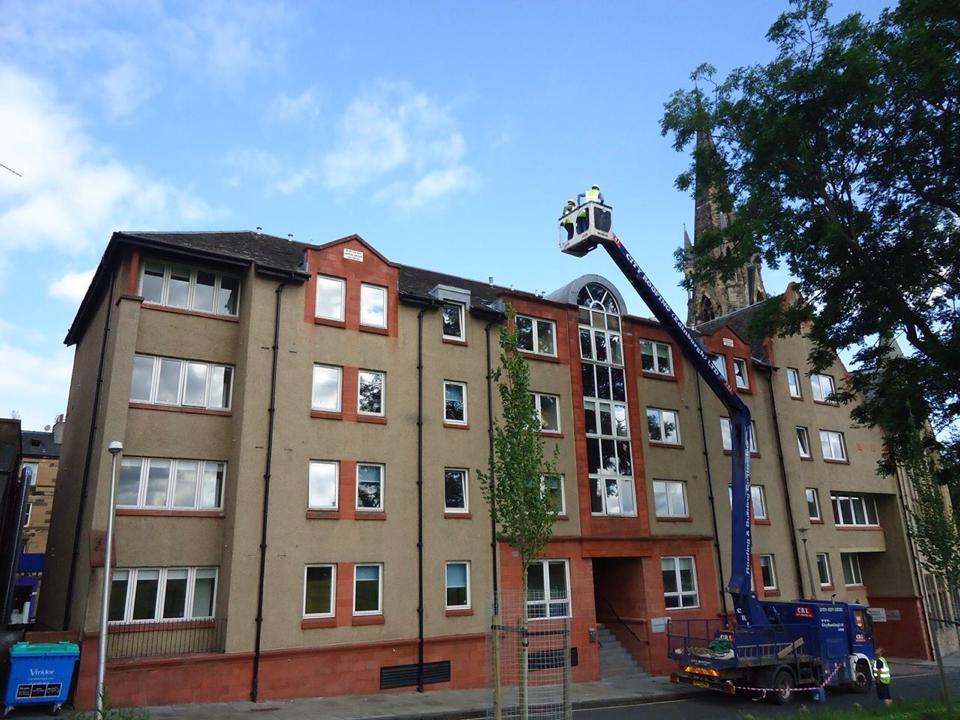
We often felt like imposters when we sat in business meetings or our solicitor’s shiny glass office. Similarly many of the firms we were trying to deal with simply couldn’t get their heads around us. Even trying to get rid of the old privately-managed, coin-operated laundry machines was a nightmare. Apparently we were the first people in the company’s history to ask for their machines to be removed. They still haven’t collected them, so they’re just sitting unplugged in our basement! We’d calculated it would be cheaper for our members to buy new machines almost every year than continue paying £3 a wash – machines designed to last 20 years. The company that managed them were incredibly confused why we’d want to turn down such a great opportunity to extract more profit from our tenants.
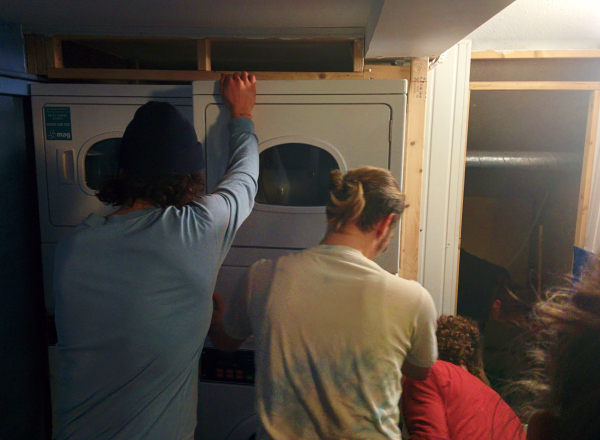
We seemed to be spending half our lives on the phone and the other half firing off emails. It was an overwhelming, jargonistic, legalistic nightmare. We had a very tight turnaround to get everything ready for August 1st. Towards the end the bulk of the work was being carried by just two of us. Due to ill health this soon became one. We were pretty frustrated, fed up, and run-down – but we were almost there.
The Members
Signing up to join a housing co-operative that doesn’t really exist yet and is being set-up by a bunch of unexperienced students is a little risky. We were worried we wouldn’t get enough applicants – jeopardising the whole project. But we also needed to ensure we attracted and accepted members who would actually put in the work to make the co-op not only function, but flourish. Alongside a whole swathe of benefits, being a member of a housing co-operative carries a fair degree of responsibility for the success of the project.

Thankfully we’d done sufficient groundwork. There were plently of people firmly committed to making the project a success. Being the most affordable student housing provider in the city, at £305/mth including all bills (and some other extras like toilet roll), certainly helped as well. For comparison, Napier were charging over £100 more per month. We received close to 200 applications. A massive relief. The diversity and quality of applications was perhaps even more impressive. Then came the difficult task of selecting. The applications were anonymised and judged entirely on two simple 200 word answers. Why do you want to live in the co-op? What skills, experience or ideas would you like to bring to the co-operative? After processing the first 80 applications we began to get into the swing of it.
The first meeting in the Golf Tavern with our newly accepted members was an odd but incredibly exciting experience. Co-operatives are first and foremost people. Up until that point we had been a pretty small rag-tag band trying hectically to throw something together. Suddenly we were part of a community in formation, sharing ideas, stories and enthusiasm. Together we were ready to begin turning a bunch of sterile flats into our one massive home.
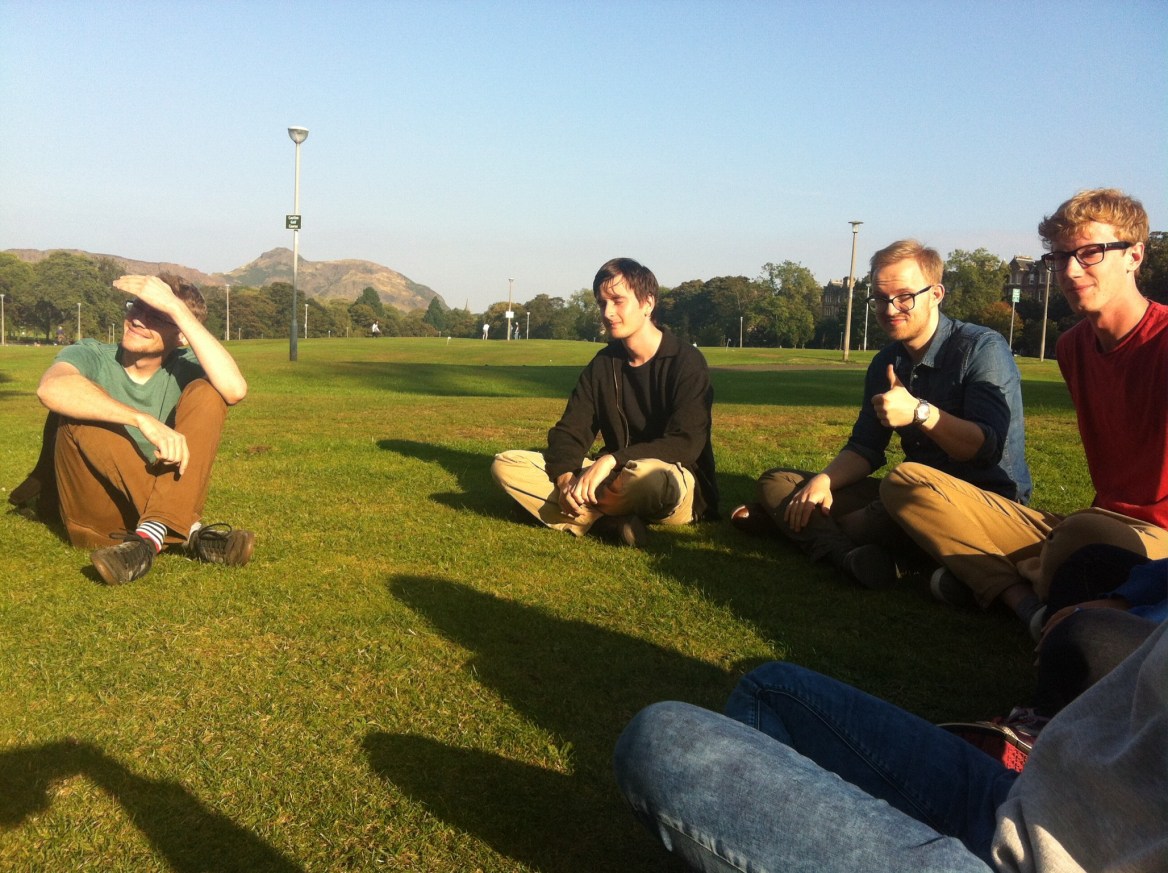
Forward!
So why have Birmingham, Sheffield and ourselves been successful where others have failed? Setting up a co-operative is incredibly daunting. We didn’t really have a clue where to begin. But we had the best success when we were the most firmly committed to the idea. If you’re not committed then you become overwhelmed, hesitant and ineffectual. This is where so many co-operative ideas fail. It’s amazing how far boldness, enthusiasm and a good idea can take such a project. It became contagious as others wanted to get involved and find the means to make it a success. But the real test will not only be in ensuring ESHC continues to prosper, but ensuring that it doesn’t remain unique. In time we’d like the whole world to be organised along such co-operative principles and values!
While dozens got us to the point of getting the keys, a special mention goes to Peter McColl, Lucy Eskell, Martin Meteyard, James Kerr, Kirsty Haigh, Hona-Luisa Cohen-Fuentes, Nathan Bower-Bir and Mike Shaw, everyone from Castle Rock Edinvar, and of course all the other members of ESHC!
